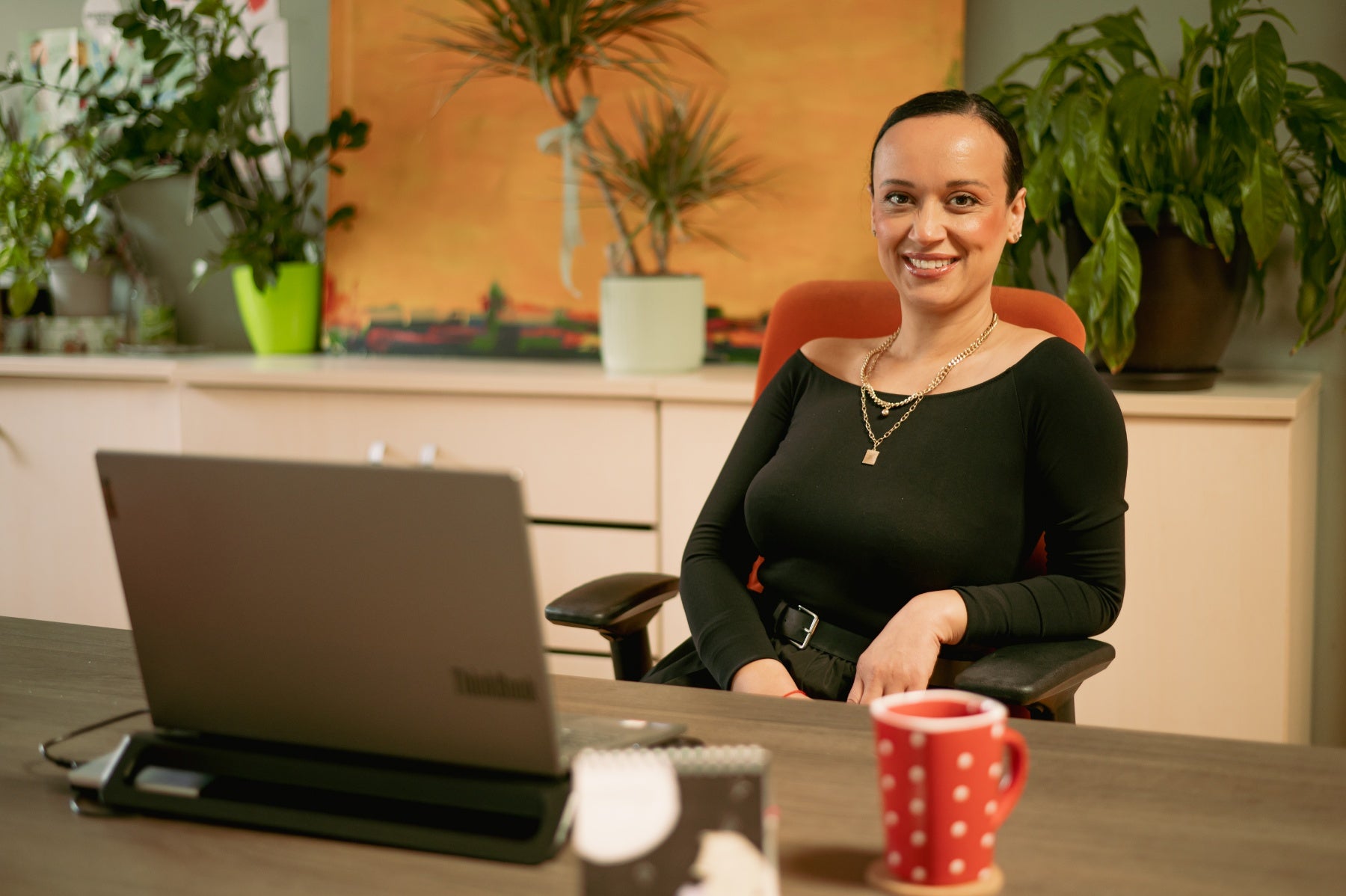Interview: "Women need systems that believe and support them, free from stigma and judgment"
Date:

In the journey from victimhood to victory, a well-rounded support system can be the difference between survival and thriving. Magdalena Chadinoska Kuzmanoski is a social justice activist and a social mentor who works over five years with women survivors of violence on economic empowerment and their reintegration into the labour market. In this interview, Magdalena sheds light on the transformative impact of personalized support strategies for survivors of violence, through Marija’s journey, how she rebuilt her life. The social mentoring programme, piloted and implemented in North Macedonia by the Association for Research, Communications and Development – Public, with the support of UN Women’s funded project “Social Mentoring Initiatives to Offer Economic Reintegration Opportunities for Women Survivors of Violence and Other Vulnerable Women (2nd Cycle),” is designed to meet the unique needs of survivors. Programmes like this not only help women leave abusive situations but also empower them to break the cycle of violence for good, ensuring long-term independence and recovery.
Can you tell us a bit about yourself and your advocacy journey for gender equality?
I consider myself a born activist, driven by a passion for social justice that extends beyond women’s issues. Through the social mentoring programme, I empower women and men to find employment and build meaningful lives.
Social mentoring empowers women by providing personalized support to achieve stable employment and financial independence, including skill-building, tailored planning, and job placement assistance. Mentors work closely with women and employers, offering ongoing guidance to ensure sustained employment, career advancement, and improved quality of life.
Educated in North Macedonia but inspired by my experiences abroad, I witnessed how well-functioning systems address gender-based violence. This exposure motivated me to advocate for similar solutions in my country.
In recent years, my focus has been on economically empowering women survivors of domestic violence. This journey has brought unforgettable stories of resilience and transformation—stories I will carry with me for a lifetime.
What was your first impression when you met Marija, and what were the key challenges you identified?
In a small basement apartment in Skopje, Marija lived a life of silent struggle—a survivor of domestic violence, a single mother to a teenager and a child with autism, and the caregiver for her ailing mother. Her days were consumed with caregiving, her nights with fear. Yet, despite overwhelming odds, Marija made a call that changed her life.
“She walked into my office with a mix of fear, shame, hope, and a deep desire for change,” Magdalena recalls. “In her eyes, I saw the vulnerability of a doe and the heart of a lion.” Marija had found Magdalena’s contact through a support group and gathered the courage to seek freedom.
As her social mentor, I knew Marija needed more than temporary relief. We created a support plan focused on her strengths and immediate needs while building a path to long-term self-reliance. I connected her with the municipal office to secure stable employment near her home, balancing her responsibilities as a mother and caregiver. Within two weeks, Marija started her new job, boosting her confidence and setting the foundation for a better future.
What role did vocational training play in enhancing her financial independence?
Recognizing Marija’s passion for makeup, we arranged vocational training to transform her hobby into a secondary income source. The additional earnings helped her cover her university expenses, and she soon began saving for her education. Today, Marija is in her final year of university, steadily moving toward her degree and a brighter future.
What challenges did you face in finding support for Marija’s care duties and how did you overcome them?
A turning point came when Marija’s youngest son, who is on the autism spectrum, started school. Fearing she might need to quit her job to support him, we arranged for an educational assistant through the local municipality. This support allowed Marija to balance her work and caregiving responsibilities, ensuring her son’s smooth transition to school.
Can you describe the transformation you witnessed in Marija compared to when you first met her?
Marija now thrives in her role at the Urban Planning office. Her child receives consistent educational support, and her makeup work provides extra financial stability. Most importantly, Marija has permanently left her abuser, breaking the cycle of violence and setting a positive example for her children.
Her story is a testament to how coordinated, empathetic support can empower survivors not just to escape violence but to build fulfilling, independent lives.
How do you think society can better support women in similar situations to Marija?
We must understand that shame lies with the abuser, not the victim. Women need systems that believe and support them, free from stigma and judgment. Marija’s story reminds us that, with the right help, women survivors of violence can rebuild their lives and create a better future for themselves and their families.
To women still trapped in abusive environments: leaving is hard, but staying is harder. Seek support and know that freedom and empowerment are possible.